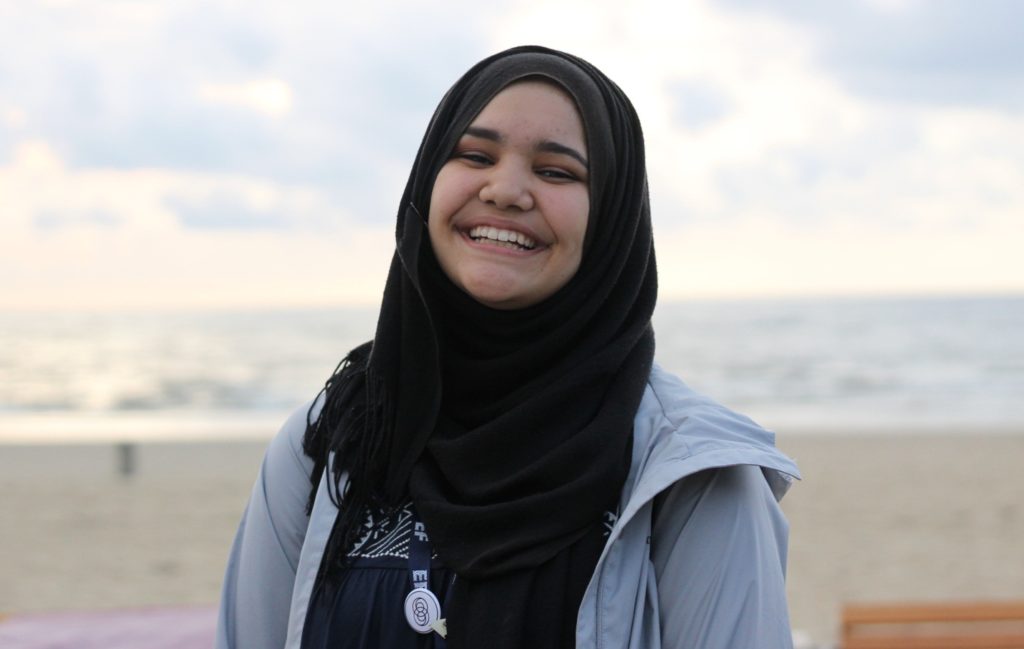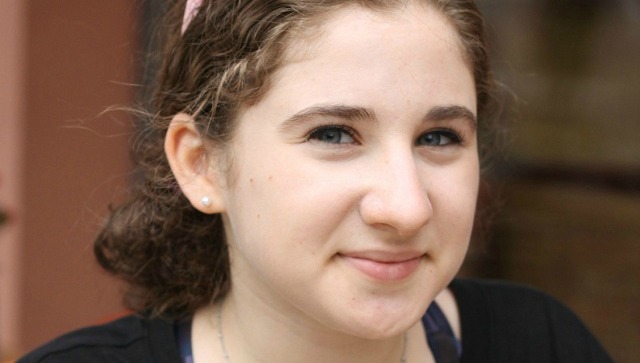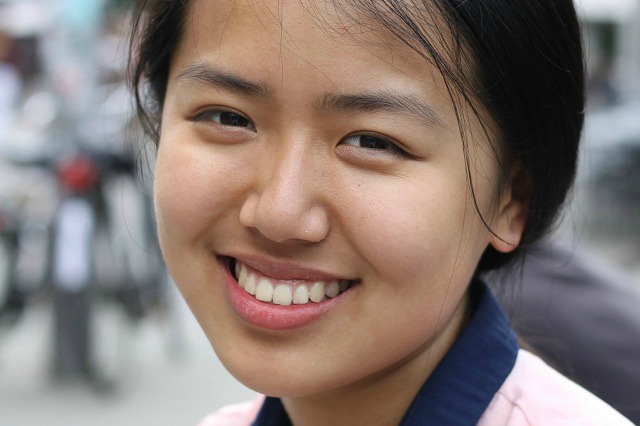This article is part of an op-ed series from EF’s Global Leadership Summit Internship Program. The program provides high school students with a deeper experience at EF Summits by gaining valuable real-life skills through public speaking, journalism, social media and photography. We asked each intern to address a Summit topic that they were particularly drawn to. Below is what intern Gabi G. had to say about the inaccessibility and inequity of education for girls.
Hi! My name is Gabriela G., but I primarily go by Gabi. I am seventeen. I am a rising high school senior. I am from New York City. I am a girl.
In the past year, for various reasons, I’ve come to feel that being a girl means my voice is not absolute. In the last six months I’ve gotten to know and travel with other EF Global Citizen Scholars, some of the most inspiring people I’ve ever met. They taught me that I cannot and should not allow my voice to be hindered – for I, along with all woman, are worth listening to.
The purpose of this article is threefold. First: to discuss an issue many people are aware of, but which I believe few people truly understand. Second: to serve as an extension of the voices of those who do truly understand. And third: to add my own voice to the conversation.
Here is what I, and girls from around the world, have to say. I urge you to not only read their stories, but to also pay attention – for we all are worth listening to.
The term “human rights” is an umbrella term that encompasses numerous entitlements, varying in terms of legitimacy and tangibility. It is a broad topic. Many people, such as those who attended the most recent EF Global Leaders Summit in The Hague, Netherlands, are drawn to the challenge of solving such complex issues surrounding the violation of human rights. To others, however, human rights challenges seem daunting – and nearly impossible – to tackle. That’s why, in working towards solving some of the most pressing human rights violations, I’ve made it my first step to pick and focus on one issue. That issue is the inaccessibility and inequity of education for girls.
We always hear about the importance of education: “a good education makes us competitive candidates in the professional world and ensures that we will have a successful future.” But within that understanding of the impact of education there are many questions left unanswered: what’s a good education? Who’s entitled to an education? Does a lack of education always lead to failure? Why is education so important?
As a soon-to-be high school graduate, these questions were particularly pressing to me. To learn more, I started interviewing a few of my friends. While I came to better understand the answers to these questions, I realized something else. All the girls that I interviewed agreed their education has helped them grow as an individual. But at the same time, they all alluded to gender inequity and the lack of educational resources for girls around the world. They considered themselves lucky. I wasn’t oblivious to how inaccessible education is for girls in other parts of the world. Similarly, I wasn’t oblivious to how my educational opportunities are strikingly different than those of a girl in West Africa. But, in a country as opportunity-filled as the United States and in a city as liberal as New York, it was not something I dwelled on frequently. Hearing about it from other women, especially women who have direct ties to the issue, made it seem more real.
Based on all of this, I came to a conclusion: while most people are aware of how out-of-reach education is for girls internationally, they do not dwell on it because they are disassociated from the issue. Often times, a girl’s lack of access to a fair education is discussed by celebrities or politicians or diplomats or ambassadors – all people who come at the issue from a higher viewpoint. However, when one focuses on a single story, and girl’s education is discussed by girls themselves, it’s something entirely different. They deeply understand the issue because they live it. If we want to solve the issue, we should focus on their stories.
I took this discovery with me to The Hague. In a similar manner to what I did back home, I interviewed girls throughout the Summit weekend, determined to collect as diverse a range of perspectives as possible. The end result was “Girls on Education,” a website dedicated to the voices and the stories of girls around the world, particularly in regards to education. Here are some of their stories:

“As an Arab-American, I think it is very easy for me to see where I could be without my education. My parents came to America to have me and my siblings because they wanted us to have a good education and to be able to pursue anything we want in our future. I could’ve just as easily become a housewife or ended up in a dead end job, unable to follow what I truly would like to do because of the lack of opportunities that education gives me there. Similarly, I do not think that all girls have the same education rights. You can easily look at where the highest child marriage and human trafficking rates come from and you can see that they root from countries without equal access to education or poor schooling systems. Young girls who are forced into marriages do not have the same rights as other girls simply because they will not even have the freedom to act upon the already limited opportunities they have. Education is the key to unlocking what the future can hold, your goals, dreams and aspirations. Having the right for equal education opportunities ensures that no one’s dreams will be held back based on a simple barrier of access.”
Bouchra Benghomari
Cambridge, Massachusetts, USA

“My mother has always told me that just because I’m a girl doesn’t mean I should be limited. She dressed me in sports pajamas when I was little because she didn’t want to put me in any gender roles or stereotypes. Much to her disappointment I still fell in love with Disney princesses. In the past few years I’ve become really passionate about gender equality. It was not an issue I was acutely aware of in middle school. Because of personal experiences, micro-aggressions towards me, and following politics, it became one of my passions once I entered high school. My education has allowed me to find that passion.
Education is an opportunity to not only learn skills crucial to building a brighter future and creating a life for yourself, but also for broadening you horizons, learning how to think critically and learning empathy. Education has allowed me to find my passion. Being given a space where you can discover what you’re passionate about and fall in love with learning is so valuable. That is what will really take you the farthest in life”.
Sabrina Epstein
San Antonio, Texas, USA

“Without my education I’d be brainwashed. I wouldn’t I have anything to think about, I’d be bored all the time, but I also don’t think I would ever have this feeling that I need to do something for the world. I would rather just be sitting at home all day. I think education in itself is basic human right. Until you have education, as well as people who are actively trying and learning, only then can you have people recognize what their human rights are, have them develop new ideas of what human rights should be and take actions on how to protect them. That being said, a good education is not about memorization. [A good education is] open to all, accessible to all, but most importantly it’s appealing to each learner and tries to get individuals to understand concepts, not just memorize them. It also prepares an individual for the future and gives them the joy of learning in the moment”
Irena Gao
Chicago, Illinois, USA
At the end of the day, girls should not have to consider themselves lucky to have an education, because it should be a right afforded to everyone regardless of their gender. There should not be any girls without an education. As Sheryl WuDunn would say, this article and the “Girls on Education” website – an attempt to address the issue of girl’s education – is just a small first step in the progression of women around the world, as well as that of the global community itself. Nevertheless, if anything is going to change, it is an important step that I am proud to be taking and that I hope others take as well.
Related articles
